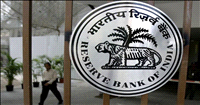UK's £2.3-billion auto bailout only on paper: former government negotiator
By by Ravi Kunder | 23 Jun 2009
Despite unveiling a £2.3-billion loan package to its car industry in late January, (See: Britain unveils £2.3-billion loan for car industry) it is understood that the UK government has not yet actually disbursed even a penny from to a single car maker so far.
According to Howard Wheeldon, senior strategist at BGC Partners, the UK government-appointed brokerage firm involved in the underwriting negotiations of the ECB loan to JLR, even after five months of announcing the package, the announcement has only been on paper so far.
Writing in the Birmingham Post, Wheeldon says, ''Three months after the government belatedly launched what it called a £2.3 billion Automotive Assistance Programme (AAP) with huge fanfare, it seems that not one single penny of assistance has yet been handed out to any struggling UK carmaker.''
In a hard-hitting indictment of the UK government's ambivalence towards its beleagured auto industry, he says, ''Thus I am left to conclude that the government is either unable, or more likely, unwilling, to deliver much needed help and that the AAP is not worth the paper it is written on.''
Wheeldon says that he is concerned over the future of Britain's iconic premium car-maker Jaguar Land Rover after the UK government put humiliating terms before Tata-owned JLR for underwriting the £340-million loan to JLR passed by the European Investment Bank in early April. (See: JLR's €366 million EIB loan hits the wall in Whitehall)
''It was with no pleasure last month that given the promise of availability of European Investment Bank and Government assistance I found myself forced to publish an account of the onerous terms offered by HM Treasury to Jaguar Land Rover owner, the Indian-based Tata Group,'' Wheeldon wrote.
Moreover, the UK government also wanted Tata to invest £300 million to £400 million before providing any guarantees on its behalf.
JLR had been negotiating with the UK government for a £500-million working capital loan at commercial rates to be repaid within two years since what the car maker wanted was not a government bailout but access to funds at commercial terms for its day to day operations, as UK banks had stopped lending despite the infusion of huge taxpayer funds.
Wheeldon further said, "Given an ''ultimatum'' of just hours to accept, the Government had decided to block JLR's access to already approved EIB loans for green technology development worth £340 million, replacing this with a miserly offer to guarantee just £175 million and to impose a 15 per cent upfront charge on the EIB loan.
No wonder Tata Motors was forced to reject the UK government's loan guarantee, which came at 15 per cent up-front commission for the government for underwriting only £175 million of the £340-million loan, plus powers to veto board decisions and the right to decide on the chairman of JLR. (See: Tata Motors rejects Jaguar Land Rover loan guarantee terms)
"To make matters even worse, the Government decided that it would underwrite any EIB loan for just six months as opposed to the originally intended three years. Given the ultimatum together with such onerous terms, few could have been that surprised that Tata would fail to accept the Government's offer as it stood."
Critics in the UK have charged the government of being more keen to save its banks than manufacturing industries, particularly the car industry, which employs 190,000 people directly and supports several more employed by suppliers and retailers.
In contrast, the government bailout and guarantees to UK banks in March 2009 had reached $2 trillion or nearly the size of the country's GDP. This figure could rise further if the financial contagion spreads, as is projected, to The UK's building societies.
Despite this bailout, unprecedented in the UK's banking history, the banks have virtually frozen commercial lending to busineses, leading to plant closures, reduced working hours, pay cuts or outright job losses, forcing companies like JLR to turn to the government for commercial loans.
Some commentators say the UK government's policy to protect banks at the cost of the taxpayer is due to the ability of banks, unlike manufacturers, to provide lucrative sinecures to out of office politicians - in he most recent examples former Prime Minister Tony Blair now takes home an estimated ?7 million a year as a consultant to J P Morgan and Zurich Insurance. His former chief of staff Jonathan Powell has become a full-time senior managing director at Morgan Stanley's investment banking division.
In contrast, as Ratan Tata told Sky News in an interview in March, the UK government had no faith in the long-term future of British manufacturing.






























